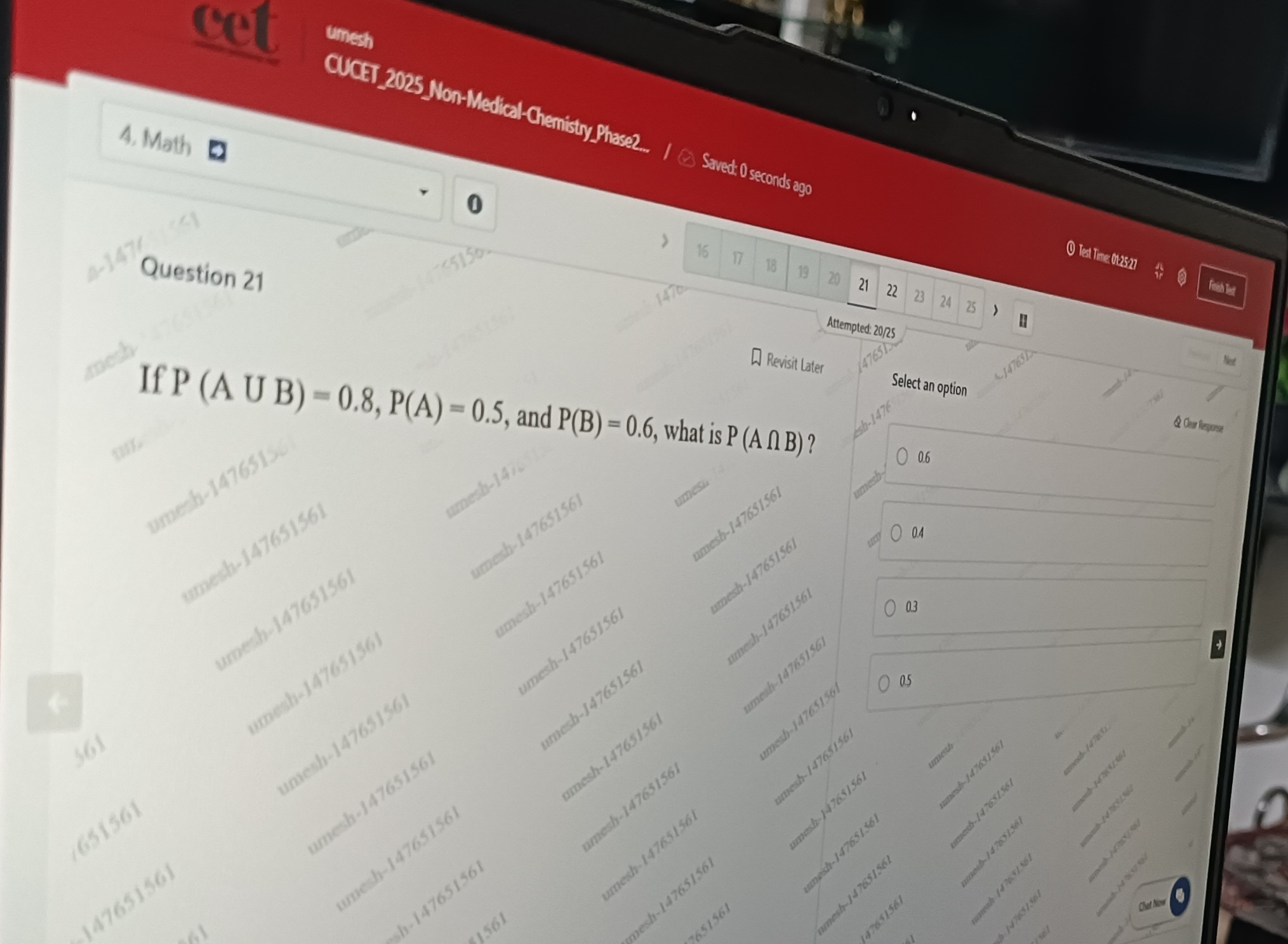Question
Question: If P(A∪B) = 0.8, P(A) = 0.5, and P(B) = 0.6, what is P(A∩B)?...
If P(A∪B) = 0.8, P(A) = 0.5, and P(B) = 0.6, what is P(A∩B)?

A
0.6
B
0.4
C
0.3
D
0.5
Answer
0.3
Explanation
Solution
We are given the probabilities of the union of two events, P(A∪B), and the individual probabilities of the events, P(A) and P(B). We need to find the probability of the intersection of two events, P(A∩B).
We use the formula:
P(A∪B)=P(A)+P(B)−P(A∩B)
We are given:
- P(A∪B)=0.8
- P(A)=0.5
- P(B)=0.6
We can rearrange the formula to solve for P(A∩B):
P(A∩B)=P(A)+P(B)−P(A∪B)
Substitute the given values:
P(A∩B)=0.5+0.6−0.8 P(A∩B)=1.1−0.8 P(A∩B)=0.3
Thus, the probability of the intersection of events A and B is 0.3.
